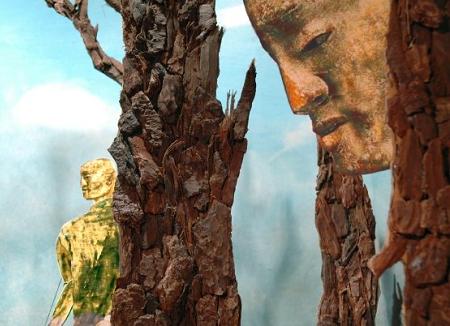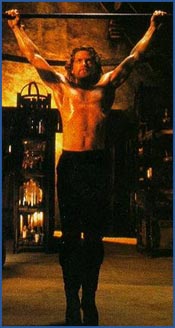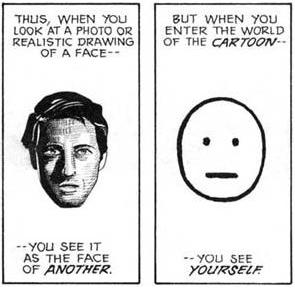Today I went with a friend to see a version of Mary Shelley’s Frankenstein, adapted for the puppet theatre as Frankenstein (Mortal Toys) by Eric Ehn, in a production directed/designed by Janie Geiser and Susan Simpson.

Despite, or more likely because of, the rough quality of the production, which had an artful, wistfully rag-tag quality, we found ourselves drawn into the sweeping tragedy of Victor Frankenstein and his misbegotten monster. There was something about the way the creature would appear, at different times, in wildly different scales (something for which puppetry is particularly well suited), which made him seem less a thing of flesh than an external manifestation of Victor’s own misshapen soul, of the ugliness lurking within his selfish vision of glory.
I couldn’t help but compare this with Kenneth Branagh’s disastrous 1994 version, in which there is no way for the audience to separate the hubris of Victor’s character from the hubris of Branagh’s performance of the doomed scientist as a kind of early Romantic-era rock star. Rather than see the character, we see the actor, and we find ourselves saying “Oh Kenneth, just get over yourself.” Which is really not what you want to be thinking in the middle of Mary Shelley’s Frankenstein.

|  | |
| Victor as Mortal Toy | Victor as Boy Toy? |
|---|
In 1811, seven years before Frankenstein was published, in an essay entitled On the Marionette Theatre, Heinrich von Kleist wrote:
“..where grace is concerned, it is impossible for man to come anywhere near a puppet. Only a god can equal inanimate matter in this respect. This is the point where the two ends of the circular world meet.” (translated from the original German by Idris Parry)
Scott McCloud very eloquently expressed a related thought in his marvelous book Understanding Comics when he conjectured why, as realism decreases, audience identification with a character may actually increase:

I think about this in my current work on interactive animated characters; it’s probably one of the main reasons I am constantly drawn to puppet theatre. Characters can gain a kind of power when they have been stripped of detail, simplified, made so universal that they become figures upon which we find ourselves projecting our own internal visions. This is true not just for comedy (what we usually think of when we think of comic books, animation, puppet shows), but for tragedy as well.
http://xkcd.com/156/